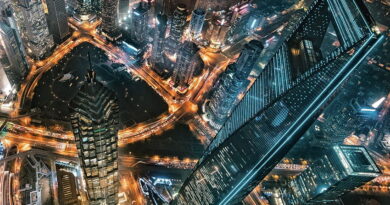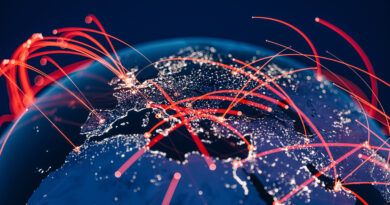What happened to Gazprom? How the Russian gas giant is doing after two years of war
The European Union gradually broke its energy dependence on Russia following the outbreak of war in Ukraine.
EU governments have replaced almost all gas and oil imports from Moscow with those from other countries, from Qatar to US-made LNG.
The Kremlin, in turn, was forced to review the functioning of its main economic engine by seeking alternative customers.
The mission succeeded, at least in part, given that the Kremlin diverted the precious goods from Europe to Asia (primarily China and India), albeit at lower prices.
In all this it is interesting to ask what happened to Gazprom, the Russian multinational, controlled by the government, active in the energy-mining sector, especially in the extraction and sale of natural gas (and not only).
A year ago Reuters wrote that the decline in gas sales in Europe could halve Gazprom's revenues.
Today, according to the Financial Times, the Moscow giant is in serious difficulty and its business model has literally ended up in ruins (or rather: in tatters).
In short, the Russian company would have become one of the most significant corporate victims of the Ukrainian conflict, explained the British newspaper.
“Gazprom is aware that it will never again have a piece of the pie as big and fat as Europe, and it simply has to accept it.
The only way forward is to look for relatively smaller sources of revenue and develop them gradually, collecting crumbs,” said Marcel Salikhov, head of the Institute for Energy and Finance.
How Gazprom is doing Gazprom, one of the largest contributors to the Russian budget, had recorded a deficit of 1.76 trillion rubles ($24 billion) in January 2023, caused by a collapse in energy revenues and a surge in spending.
Moscow, which as mentioned relies on revenues from oil and gas – in 2020 this value reached around 11.6 trillion rubles – was forced to start selling international currency reserves to try to cover the hole.
“Gazprom's model, which consisted of generating excessive profits in Europe and then distributing them among entrepreneurs close to Putin, no longer exists,” said Vladimir Milov, former deputy energy minister, architect of the company's reforms at the beginning of the 2000s and later an associate of the dissident Alexei Navalny.
The main recipient of Gazprom's profits is now the Russian state, which immediately after the invasion imposed an additional monthly levy of 50 billion rubles on the company until 2025.
Although gas exports to China have increased, volumes they remain relatively small.
Suffice it to say that in 2023 Russia sent approximately 22 billion cubic meters of gas to the Dragon via pipelines, a fraction of the annual average of 230 billion cubic meters exported to Europe in the decade before the war in Ukraine.
The future of Russian gas Gazprom could improve its prospects if an agreement is reached between the Russian and Chinese governments on the construction of the Power of Siberia 2 – a strategic infrastructure that would connect the gas fields that once supplied Europe to China – but Beijing and Moscow have yet to reach an agreement.
We can therefore say that the company is not at all in excellent health but neither has it collapsed as some analysts had predicted.
The situation is simply as complex as it is delicate.
Meanwhile, although Russian exports of liquefied natural gas are gradually increasing, they remain a fraction of pre-war deliveries.
Novatek accounts for the majority of the Russian Federation's LNG exports, with Gazprom lacking the specialized infrastructure to convert and transport the liquid form of the fuel, having bet on pipelines rather than liquefaction technologies at the dawn of the Putin era.
Gazprom's oil business, Gazprom Neft, has instead become the company's main lifeline, contributing 36% of revenue and 92% of net profit in the first half of 2023.
The division's market value has even surpassed that of the parent company last year.
In the midst of a thousand doubts, one thing is certain: Gazprom's business model is unlikely to return to what it was a few years ago.
read also Why Xi and Putin want to strengthen relations between Russia and China




